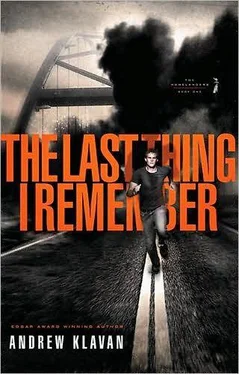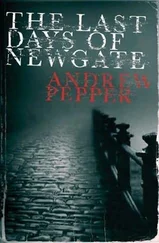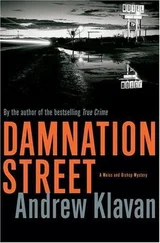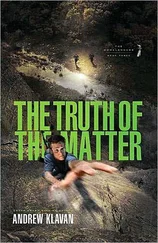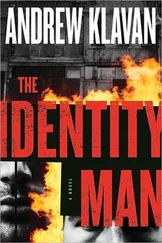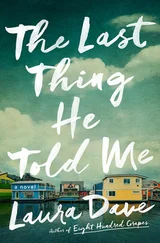Andrew Klavan - The last thing I remember
Здесь есть возможность читать онлайн «Andrew Klavan - The last thing I remember» весь текст электронной книги совершенно бесплатно (целиком полную версию без сокращений). В некоторых случаях можно слушать аудио, скачать через торрент в формате fb2 и присутствует краткое содержание. Жанр: Триллер, на английском языке. Описание произведения, (предисловие) а так же отзывы посетителей доступны на портале библиотеки ЛибКат.
- Название:The last thing I remember
- Автор:
- Жанр:
- Год:неизвестен
- ISBN:нет данных
- Рейтинг книги:5 / 5. Голосов: 1
-
Избранное:Добавить в избранное
- Отзывы:
-
Ваша оценка:
- 100
- 1
- 2
- 3
- 4
- 5
The last thing I remember: краткое содержание, описание и аннотация
Предлагаем к чтению аннотацию, описание, краткое содержание или предисловие (зависит от того, что написал сам автор книги «The last thing I remember»). Если вы не нашли необходимую информацию о книге — напишите в комментариях, мы постараемся отыскать её.
The last thing I remember — читать онлайн бесплатно полную книгу (весь текст) целиком
Ниже представлен текст книги, разбитый по страницам. Система сохранения места последней прочитанной страницы, позволяет с удобством читать онлайн бесплатно книгу «The last thing I remember», без необходимости каждый раз заново искать на чём Вы остановились. Поставьте закладку, и сможете в любой момент перейти на страницу, на которой закончили чтение.
Интервал:
Закладка:
Then she picked one up. It had gotten brighter now, and I could see what it was from where I was standing: an aluminum soda can. Of course, then I understood. She was collecting cans so she could get the deposits. I used to do the same thing when I was little. When you buy a soda in our state, you pay a ten-cent deposit on the can. Then when you take the can back, they give you back the dime. It’s supposed to stop people from throwing the cans away and making a mess. But of course people are lazy and they throw the cans away anyway. If you go out and look around, you can collect them-a lot of them-enough to make some pretty good money. As always, Crazy Jane was not as crazy as she seemed.
So I joined her. And as the day slowly broke, the two of us moved in concert over the field of garbage. She crossed one way and I crossed the other, searching the ground for cans. In the middle, we would pass each other and I would hear her murmuring, “Jane knows… the impulses can’t fool her… it’s mind control, that’s all… to take me back to the hospital… ” and other nutty stuff like that. Then I’d go past and she’d go past and we’d go on crisscrossing through the garbage, searching for cans.
There were a lot of them. I guess Jane had some experience in this and knew all the best places to look. By the time the sun finally edged up over the railroad tracks across the street, her large black plastic bag was rattling with cans, and so was mine. By then, too, my back hurt something fierce, and I was tired. This was hard work, moving back and forth, bending over, scanning the ground. And the bag kept getting bulkier and bulkier as I added more and more cans, making it harder to work.
We went on for what felt like a long time, at least an hour after the sunrise. After a while, I started thinking about that story in the newspaper. It said that Yarrow was arriving at eleven a.m. and would meet with the governor for an hour before traveling to the president’s house. That didn’t give me a lot of time to get back to Centerville, to find him, to warn him. But I couldn’t get back to Centerville without money. So I went on-back and forth across the field, wrestling cans out from the rebar and rubble and stuffing them in my bag.
Finally, Jane stopped. She straightened. She stretched backward, her grimy, pocked face turned up to the morning sky. Her plastic bag sat on the ground beside her, bulging with cans.
“That’s all,” she said.
I looked around me. We were only about halfway over the field. “That’s all?” I said. “Are you sure?”
She nodded. “Jane knows.”
Once again, we went off together, she and I, walking down the street side by side, each of us now carrying a bag stuffed full of cans. Jane kept her free hand on my elbow as always and, as always, she kept up her murmuring, guiding me along with her quick steps.
It was full morning now. The city was waking up. There were a lot more people around us. There was traffic on the broad avenues-cars, taxis maneuvering for space, and the occasional bus rumbling by. There were men and women hurrying past us on every side, more and more of them coming out of their apartment buildings, coming out of stores, heading for their cars or bus stops, heading for work. With every step we took, I felt more exposed. Here we were: a young guy and a muttering crazy lady carrying two huge plastic bags full of soda cans. We kind of stood out in the crowd, if you see what I mean. Any minute, I thought, someone would take a good look at us and recognize me. Or maybe a policeman would go by and spot me. Any minute, I thought I was going to have to drop my bag and run for it.
But it didn’t happen. Because I think the truth is, in a funny way, we didn’t stand out at all, Jane and I. She with her grimy face and her big overcoat and her skin sores, and me with my bleary eyes and my two days’ growth of beard: we just looked like two crazy homeless people, wandering the streets with our bags. Instead of staring at us, people looked away from us on purpose. So they wouldn’t have to pay attention to us, you know, or think about us or stop and give us money. In a funny way, we were invisible.
All the same, I was glad when we reached the supermarket. Whether it made sense or not, it felt safer, somehow, to be inside, off the street. The can-return machines were right near the glass doors. They were two big blue boxes with big round holes in the center of them and digital readouts off to the side. We set our bags down next to them and began reaching in and bringing out the cans, stuffing them into the holes in the machines. We could see the amounts of the deposits mounting up dime by dime on the readouts.
I kept looking over my shoulder, afraid someone would recognize me. But the store was pretty empty, and anyway, like I said, we were just two homeless people bringing in our cans. No one paid us any mind.
Finally, we were done. The digital readout on my machine was $9.50-nearly a hundred cans. Jane beat me, bringing in $12.70. We pressed the buttons marked End, and each machine spit out a receipt. I waited while Jane took the receipts over to the cash register. The lady there paid her the $22.20. Jane took it in her fist and stuffed it down deep into the pocket of her overcoat.
Then she came back to where I was waiting at the machines. She took my arm, murmuring to herself. Murmuring to herself some more, she started walking with her quick steps. I let her take me back out onto the street.
She didn’t stop there. She went on walking and talking.
“They shouldn’t have tried it. They shouldn’t have tried their mind control on Jane. Now Jane knows. Jane is ready for them.”
I went along with her, wondering where we were headed. About ten minutes later, I found out.
We came to a busy corner closer to the center of town. There was a food market there and an old, rundown hotel. People were rushing by us on every side, even jostling us sometimes, but none of them paid us any attention. I looked around, trying to figure out why we had stopped. Then I saw the bus station.
It was right across the street, a one-story building with large plate-glass windows. It was set near a parking lot, and the lot was full of buses. I knew there would be one there that would take me back to Centerville. I had a strange feeling in my stomach, sort of like the one you get when an elevator drops too fast.
I turned and looked down at Jane. She was peering up at me with that big round face and those big round eyes of hers. She let go of my elbow and took hold of my wrist. She lifted my hand and brought her fist out of her pocket. She was clutching the twenty-two dollars we’d gotten for our cans. She put the money into my hand.
“No, wait,” I said. “Jane. You can’t give me all of it. You’ve got to keep some for yourself, for food and stuff. We both found the cans. We should split the money so you can get something to eat.”
But all the while I was talking, she was going on in that dreamy murmur: “No, no, no, no, no, no, no.” Pressing the money against my palm, forcing my fingers closed around it.
When she looked up at me again, my eyes went over her-over her filthy, matted dreadlocks and over the patches of dirt on her skin and over the broken sores where red showed through and finally back to those wide, strangely innocent eyes.
“Jane… ” I said.
“Take the money, Charlie,” she said to me. “Take the bus. Stop them. Stop Orton.”
“But Jane, listen…”
Her long, serious mouth curved upward at one side in a faint hint of a smile. “Don’t you worry. They can’t get Jane… they try and try, but Jane knows. Electricity is the secret. Mind control.”
“You have to have money, though…”
“Jane is ready for them. Jane goes on.” She forced my fist back toward me with the money held tight inside. “Charlie isn’t one of them. Charlie stopped the knifeman.”
Читать дальшеИнтервал:
Закладка:
Похожие книги на «The last thing I remember»
Представляем Вашему вниманию похожие книги на «The last thing I remember» списком для выбора. Мы отобрали схожую по названию и смыслу литературу в надежде предоставить читателям больше вариантов отыскать новые, интересные, ещё непрочитанные произведения.
Обсуждение, отзывы о книге «The last thing I remember» и просто собственные мнения читателей. Оставьте ваши комментарии, напишите, что Вы думаете о произведении, его смысле или главных героях. Укажите что конкретно понравилось, а что нет, и почему Вы так считаете.
